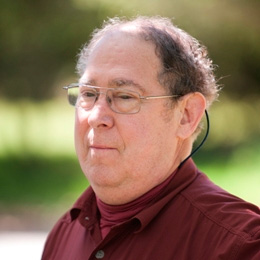Shock spread through the climate science community today with the news that Stanford’s Stephen Schneider has died.

Schneider reportedly suffered a heart attack on a flight from Stockholm to London. Schneider founded a scientific journal on the subject of climate change and was a vocal advocate of the need for policy action, to respond to the threat posed by global warming.
A release issued by Stanford today reads, in part:
“Steve, more than anything, whether you agreed with him or not, forced us to confront this real possibility of climate change,” said his colleague at Stanford’s Woods Institute for the Environment, Jeff Koseff.
Schneider was influential in the public debate over climate change and wrote a book, Science as a Contact Sport: Inside the Battle to Save Earth’s Climate, about his experiences. He also wrote a book about his battle with leukemia, Patient from Hell.
He had been a White House consultant in the Nixon, Carter, Reagan, George H.W. Bush, Clinton, George W. Bush and Obama administrations.”
Schneider last appeared on KQED’s air just after the UN climate talks ended in last December, with what many considered a whimper. His disappointment was palpable as he spoke with Forum host Dave Iverson over a tenuous cell phone connection from Copenhagen (Schneider joins the program about 30 minutes in). He also made Forum appearances in programs in 2007 and 2004.
On his widely read Dot Earth blog for the New York Times, Andrew Revkin offers a personal perspective on Schneider, his work, and his bigger-than-life personality.
2 thoughts on “Climate Science Loses a Bright Light”
Comments are closed.

Anyone who brings truth and light to the world must be honored. We meed more people like him.
It is time we address the real problem: overpopulation.
Unless we limit the number of people, already this year, the National Academy of Sciences predicted tat humanity will not survive more than 200-300 years, which is a blip of time.
Our planet cannot sustain us already as 8 million die yearly due to insufficient food and water. How can we survive if in 20 years we will have ab out 2 BILLION more people?
This is a clear and present danger that we all must start confronting if we hope for a chance to survive.
A basic concept taught in environmental law and science is “existence value” – a concept that is intended to fracture the (pernicious) limits of mere quantitative value. A familiar example: if so very few people will ever see the Arctic National Wildlife Reserve, why is it important to protect and preserve it? The answer is that its existence value, to all of us who may never visit ANWR, far exceeds its dollar value or any other quantitative metric.
Existence value is real.
I’m struck by the focus of the many comments about Steve’s passing on his keen mind, his clear thought, his focused speech, his unbridled courage, his infinite energy. All true, all appropriate. As a rapt student of his in the early ’90s, I saw all of this, and then some.
Yet today I feel a larger loss, one that suddenly discloses to me Steve’s larger, nay enormous, existence value. Because Steve was out there, teaching and speaking truth to power on a daily basis, he possessed and delivered existence value to everyone on the planet, not just the few who were lucky enough to know him, or hear him speak.
Today, we have lost the measurable Steve, but not the immeasurable Steve, not his existence value.
His thought lives on, and thus his value persists in this world, on this planet. While I mourn, I celebrate.